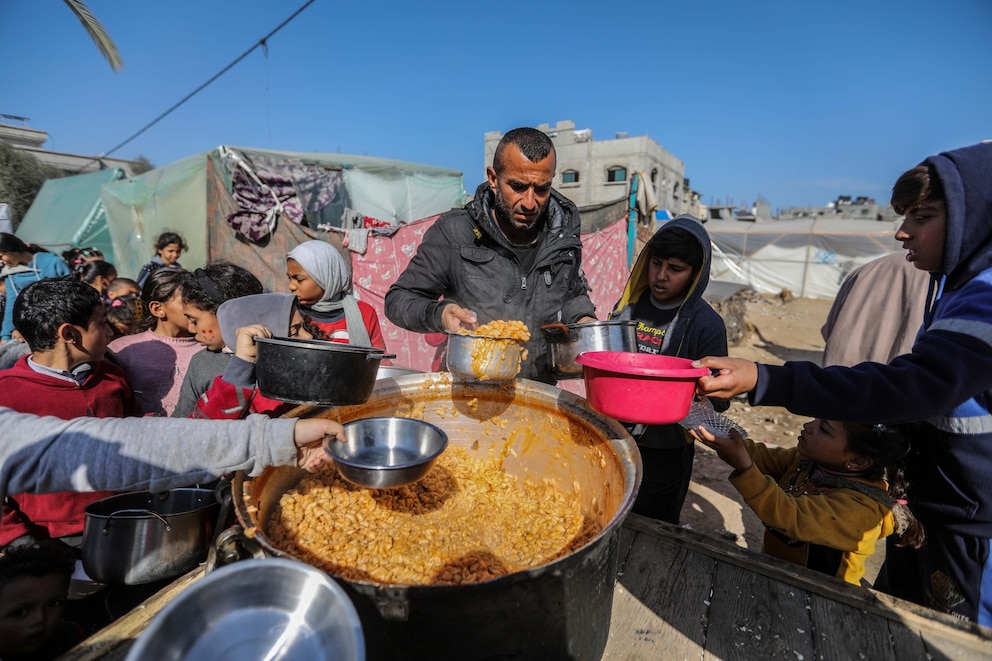The Humanitarian Crisis In Gaza: A Consequence Of Israel's Blockade

Table of Contents
The escalating humanitarian crisis in Gaza is a complex issue with deep roots. This article examines the devastating impact of Israel's blockade on the lives of Gazans, exploring its consequences and highlighting the urgent need for international action to end Israel's blockade of Gaza and alleviate the suffering of its people. The ongoing restrictions have created a dire situation, demanding immediate attention and a comprehensive solution.
<h2>The Economic Devastation Caused by Israel's Blockade of Gaza</h2>
Israel's blockade of Gaza has crippled the territory's economy, pushing millions into poverty and despair. The severe restrictions imposed have created a suffocating environment that prevents economic growth and opportunity.
<h3>Restrictions on Trade and Movement:</h3>
The blockade severely limits the import and export of goods, hindering economic development and job creation. This stifles vital industries and prevents Gazans from accessing necessary resources and global markets.
- Limited Access to Markets: Restrictions on the movement of people and goods prevent businesses from trading freely, limiting their potential for growth and profitability. This directly impacts income and livelihoods across the population.
- Declining GDP and Unemployment: The blockade has resulted in a dramatic decline in Gaza's GDP and a soaring unemployment rate, particularly amongst young people. According to UN reports, unemployment exceeds 50%, leaving vast swathes of the population without means of support.
- Impact on Specific Industries: The fishing and agricultural sectors, traditionally important to Gaza's economy, have been especially hard hit. Restrictions on fishing zones and the import of necessary equipment have severely curtailed their output, exacerbating food insecurity.
<h3>The Impact on Essential Goods and Services:</h3>
The blockade leads to shortages of essential goods, including food, medicine, and building materials, driving up prices and creating significant hardship.
- Food Insecurity: The limited supply and high cost of food contribute to widespread malnutrition, particularly among children and vulnerable populations.
- Healthcare Crisis: Restrictions on importing medical equipment and supplies have severely hampered the healthcare system's ability to function effectively. This leads to increased rates of preventable diseases and reduced access to essential treatments. Many essential medicines are in critically short supply.
- High Cost of Living: The scarcity of goods, coupled with the high cost of imports, makes it incredibly difficult for Gazans to afford even basic necessities. This leaves families struggling to survive day-to-day.
<h2>The Humanitarian Consequences of Israel's Blockade on Gaza's Infrastructure</h2>
Years of blockade and repeated military operations have left Gaza's infrastructure in ruins, further exacerbating the humanitarian crisis. The lack of resources for repairs and reconstruction hinders any meaningful recovery.
<h3>Damage to Infrastructure:</h3>
The ongoing conflict and lack of investment have severely damaged Gaza's essential infrastructure.
- Electricity Shortages: Frequent power outages severely disrupt daily life, impacting healthcare services, businesses, and education. The limited electricity supply is insufficient to meet the needs of the population.
- Water and Sanitation Crisis: Damage to water and sanitation systems leads to widespread contamination and health risks. A significant percentage of the population lacks access to clean and safe drinking water.
- Damaged Housing and Buildings: Repeated conflicts have destroyed countless homes and buildings, leaving thousands homeless and vulnerable. The lack of building materials further hinders reconstruction efforts.
<h3>Limited Access to Education and Healthcare:</h3>
The blockade severely limits access to quality education and healthcare services.
- School Closures and Teacher Shortages: Damage to schools and the lack of resources have led to school closures and a shortage of qualified teachers, impacting the education of future generations.
- Limited Medical Equipment and Supplies: Hospitals and clinics struggle with a lack of essential medical equipment, medicines, and trained personnel, resulting in compromised healthcare.
- Long-Term Health Consequences: The limited access to healthcare has long-term consequences for the health and development of the population, leading to higher rates of chronic illness and disability.
<h2>The International Community's Response to the Crisis in Gaza Caused by Israel's Blockade</h2>
The international community has responded to the crisis in Gaza, but the effectiveness of these efforts is severely hampered by political complexities.
<h3>International Aid and Humanitarian Efforts:</h3>
Numerous international organizations provide humanitarian assistance to Gaza, but their efforts are often insufficient to meet the overwhelming needs.
- Limitations and Challenges: Aid delivery is hampered by bureaucratic obstacles, security concerns, and the ongoing restrictions imposed by the blockade.
- Effectiveness of Aid: While humanitarian aid provides vital support, it cannot address the root causes of the crisis. It is a temporary measure that cannot replace lasting solutions to ensure the long-term survival and prosperity of the Gazan population.
- Political Complexities: The political dynamics surrounding the conflict often hinder the delivery of aid and limit its effectiveness in addressing the underlying problems.
<h3>International Calls for an End to the Blockade:</h3>
Numerous international bodies and governments have called for an end to Israel's blockade, but these calls have not resulted in significant changes.
- UN Resolutions and Statements: The United Nations has repeatedly condemned the blockade and called for its lifting, but these resolutions have largely been ignored.
- Advocacy Efforts: Many countries and organizations actively advocate for the lifting of the blockade, but political obstacles hinder meaningful progress.
- Political Obstacles: The deeply rooted political conflict and the differing interests of involved parties make it difficult to achieve a consensus on ending the blockade.
<h2>Conclusion</h2>
The humanitarian crisis in Gaza, a direct consequence of Israel's blockade, demands immediate and decisive action. The severe economic hardship, damaged infrastructure, and limited access to essential services have created an unbearable situation for the people of Gaza. International pressure to lift the blockade and ensure unrestricted access to humanitarian aid and essential resources is paramount. We must actively work towards a just and lasting resolution to end the suffering caused by Israel's blockade of Gaza and promote lasting peace and stability in the region. Let's advocate for an end to Israel's blockade of Gaza and demand accountability for the ongoing humanitarian catastrophe. The lifting of Israel's blockade is not just a humanitarian imperative; it is a moral obligation.

Featured Posts
-
 Shocking Ufc News Jeremy Stephens Comeback Announcement
May 11, 2025
Shocking Ufc News Jeremy Stephens Comeback Announcement
May 11, 2025 -
 Analysis Thomas Muellers Potential Departure From Bayern Munich
May 11, 2025
Analysis Thomas Muellers Potential Departure From Bayern Munich
May 11, 2025 -
 Increased Risk For Indy 500 Drivers In 2025 Season
May 11, 2025
Increased Risk For Indy 500 Drivers In 2025 Season
May 11, 2025 -
 City Name Michigan A College Students Paradise
May 11, 2025
City Name Michigan A College Students Paradise
May 11, 2025 -
 Shevchenko Vs Zhang Superfight On The Horizon After Ufc 315
May 11, 2025
Shevchenko Vs Zhang Superfight On The Horizon After Ufc 315
May 11, 2025
